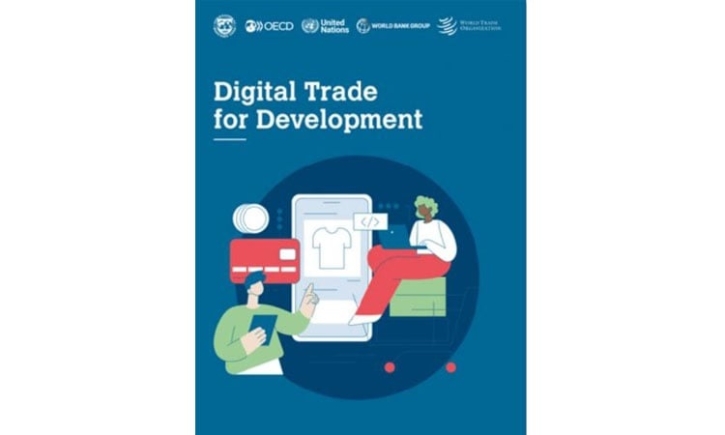Bangladesh e-commerce creates opportunity for developing economies: Report
|| BusinessInsider

Representational photo
Bangladesh has shown promising growth in its information technology (IT) sector, especially in software development and IT-enabled services, said a global report on 'Digital Trade for Development'.
Prepared by the staff of the International Monetary Fund (IMF), the Organisation for Economic Co-operation and Development (OECD), the United Nations Conference on Trade and Development (UNCTAD), The World Bank, and the World Trade Organization (WTO), the report shows that the adoption of e-commerce in Bangladesh, especially business-to-business (B2B) e-commerce in the ready-made garments industry, presents an opportunity for the trade development of developing economies.
As per the report, digital technologies have the potential to enhance e-commerce in least developed countries (LDCs) by connecting remote economies to global markets, reports BSS.
To enable more inclusive outcomes from digitalization, it is important to enable economies trailing behind in terms of digital readiness to catch up.
By addressing challenges in transport and connectivity infrastructure, enhancing digital skills and strengthening regulatory frameworks, LDCs would become better positioned to tap into the vast network of e-commerce, expanding their market reach and increasing economic growth.
It, however, mentions that export opportunities for digitally delivered products could be better harnessed by economies traditionally at the margins of global trade.
Although distance remains a significant factor in overall trade costs, digital technologies reduce the relative importance of some factors of comparative advantage, such as geographical distance from markets and the quality of transport infrastructure.
Trade in digitally delivered products, such as e-books, music and computer software, can thrive with improved internet access, an enabling regulatory environment and digital payment infrastructure.
According to the report, certain traditional factors of comparative advantage in trade may become less significant in the digital realm.
While capital investments and labour costs remain relevant for digital trade, their importance (at least for certain types of skills) is somewhat diminished compared to offline trade.
The report informs that some economies are more prepared to seize opportunities and take on challenges associated with digital trade, highlighting the importance of digital infrastructure and skills.
In general, to engage in and benefit from digital trade, consumers and businesses must have access to fast, affordable and reliable digital infrastructure as well as the skills and capabilities to use digital technologies for productive activities.
High tariffs on imports of information and communication technology (ICT) equipment, restrictions on imports of enabling services and limited competition in telecommunications services can reduce affordability and slow down the adoption of these technologies.
























